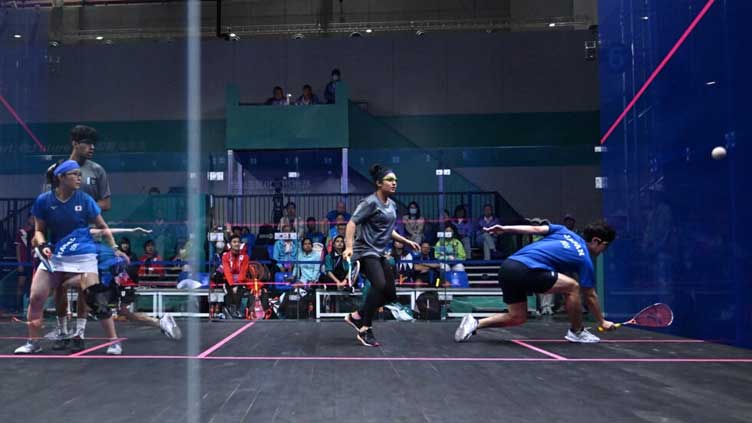Squash desperate to end 'very weird' Olympic exile in 2028

Sports
When it comes to Olympic recognition, squash has always ended up with the wooden spoon
Hangzhou (China) (AFP) – Squash has never been in the Olympics despite decades of trying, but players and officials hope that the 150-year-old sport will finally get its big chance in 2028.
When it comes to Olympic recognition, squash has always ended up with the wooden spoon, failing with bids to make the past four Games. It is one of nine sports vying for a place at the 2028 Los Angeles Olympics, along with the likes of cricket, lacrosse and motorsport.
Squash faces a nervy wait before the decision, which could be taken at the International Olympic Committee session in Mumbai this month. World Squash Federation president Zena Wooldridge told AFP she was optimistic, but admitted it could go either way.
"There's a lot of talk about cricket, there's a lot of talk about baseball, lacrosse is an indigenous sport to the USA," she said at the Asian Games in Hangzhou. "There are lots of different advantages and disadvantages of each being discussed, but we just don't know. We don't have control."
'It's weird'
Squash is played around the world, has a professional tour for men and women, and features at the Commonwealth Games, Asian Games and Pan American Games. The action is fast and furious, especially in doubles, where players frantically clamber over each other to reach shots.
"It's a cross between a racquet sport, a combat sport and, if you were to put doubles in there, some acrobatics as well," said Wooldridge. Mixed doubles is making its Asian Games debut alongside men's and women's singles and team events.
India won the men's team title with a 2-1 win over Pakistan that Indian team member Abhay Singh said was "the most-talked-about match at the Asian Games". "To have something of that magnitude go down at the Olympics would absolutely be so amazing," he said.
"It's very weird to me why squash is not in the Olympics."
Space Invaders
Squash is widely played recreationally but it has not always translated well as a spectator sport. Players must make an effort to get out of each other's way so they can hit the ball, but the hectic nature of the game means points are often unclear and decided by the referee.
Hong Kong's Tong Tsz-wing, who was part of the women's team that won silver in Hangzhou, said "the subjective nature" of the game can be a problem. "But I don't see a reason why we can't handle it and we've been trying hard to do that," she said.
"I just feel like we should have a fair chance." Wooldridge says squash chiefs have worked to make the sport more appealing to audiences, putting courts in locations such as theatres and making commentary easier to understand.
She says technology is changing the sport, with courts now able to install interactive playing walls that function like "a giant iPad". "You could put Space Invaders on there and you hit the front wall -- your finger becomes the ball," she said.
"There's all kinds of innovations that you can bring to the sport to almost make it a combination of eSports and physical sport." Whether squash's new ideas will be enough to finally give it a place at the Olympics remains to be seen.
ESports has been a big hit at the Asian Games and the IOC is keen on bringing in sports that appeal to younger audiences. Breakdancing will make its Olympic debut next summer in Paris and skateboarding did so in Tokyo two years ago.
Of the more traditional racquet sports, tennis, table tennis and badminton have all been included for at least the last 30 years, leaving squash out in the cold. Wooldridge says appearing at the Olympics would be "the pinnacle" for players and Indian gold medallist Singh agrees. "That's the dream, isn't it," he said.
"Every athlete wants to be at the Olympics. Fingers crossed."

